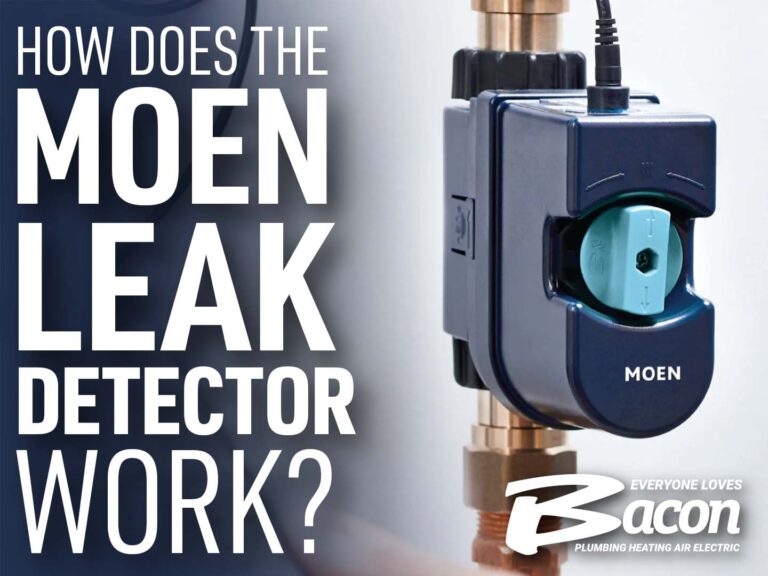Can heavy rain cause plumbing issues? Heavy rainfall, though usually overlooked, can lead to significant plumbing issues in U.S. homes. This is particularly evident in regions like the Dallas-Fort Worth Area and the Greater Houston Area, which experience intense rainfall patterns. In August 2022, parts of Dallas experienced heavy rainfall – more than 15 inches – within just two days, causing widespread flooding and sewer overflows.
Similarly, the Greater Houston Area frequently faces heavy rain events, receiving about 45.28 inches of rainfall each year, which leads to high water levels and extensive flooding. Unfortunately, intense rainfall can overwhelm sewer systems and cause backups in homes. In this article, we will explore the various plumbing issues that can arise due to heavy rainfall. Also, we will examine how heavy rain affects your septic system and toilets, and provide practical tips to protect your plumbing system from heavy rain.
Common Plumbing Problems During Heavy Rain
Furthermore, heavy rainfall can lead to a variety of plumbing problems that homeowners should be aware of. Staying vigilant can help prevent significant damage and costly repairs. Here are some common plumbing issues due to heavy rain:
- Outdoor Flooding Due to Poor Drainage Systems
Improper drainage systems can lead to outdoor flooding during heavy rain. This flooding can pose risks to a home’s foundation, driveway, and overall structural integrity. To mitigate these risks, homeowners can install area drains, which help redirect water away from vulnerable areas.
- Clogged Drains from Debris Buildup
Additionally, leaves, soil, and debris washed in by rain can block indoor drains. This causes water to pool in sinks, showers, and bathtubs. Regular maintenance is crucial to prevent these blockages. Potential fixes include hiring an expert for thorough drain cleaning or hydro-jetting. For more information, you can check out our professional drain cleaning services and hydro-jetting services.
- Sewage Backup Due to Blocked Drains
What’s more, blockages from rain-related debris, such as mud, soil, trash, sand, and leaves can lead to sewage backup. In fact, when the rain is really heavy, municipal sewers may become overwhelmed. This may cause water to flow backward into homes. To manage and prevent sewage backup, homeowners should ensure their drains are clear and free-flowing. Also, you may consider installing backwater valves.
- Pipe Cracking and Bursting from Ground Saturation
Moreover, heavy rain often makes the ground softer. Thereby, allowing pipes to shift, burst, or crack. Homeowners can watch out for common signs of pipe damage, such as discolored water, unexplained puddles, and strange odors. Once you notice any of these signs, you should address the pipe damages quickly to mitigate further plumbing issues.
How Heavy Rain Impacts Your Septic System and Toilets
Can heavy rain affect plumbing systems? Heavy rain can significantly affect the septic tank system in your home. It can cause the system to overflow or result in a backup. When the ground becomes saturated with water, it can prevent the septic system from properly draining. Thus, leading to backups in toilets and drains. This can result in unpleasant odors, slow drainage, and even sewage spilling into your home.
For this reason, regular inspections and maintenance of your septic system are crucial, especially before the heavy-rain season. Also, you need to pump your septic tank regularly and always make sure the drain field is functioning properly. In addition, you can divert rainwater away from your septic system by using proper landscaping and drainage solutions to reduce the risk of overflow.
Preventive Measures to Protect Your Plumbing from Heavy Rain
As previously mentioned, heavy rain can cause plumbing issues. To prepare your plumbing system for heavy rain, consider the following actionable tips:
- Clear Outdoor Drains: Regularly remove debris from outdoor drains to prevent blockages.
- Inspect Gutters and Downspouts: Ensure that gutters are clean and can direct water away from your home.
- Install Area Drains: Install area drains to help redirect water away from vulnerable areas.
- Check for Leaks: Regularly inspect your plumbing for leaks and repair them promptly.
- Maintain Septic System: Schedule regular inspections and pumping of your septic system.
- Install a Sump Pump: A sump pump can help keep your basement dry by pumping out excess water. You can always call on our experts for your sump pump installation needs.
- Use Backwater Valves: Unfortunately, heavy rain can cause plumbing backup issues. Hence, you should install backwater valves to help prevent sewage from backing up into your home.
- Seal Cracks in Foundation: Once you notice any cracks or holes in your home’s foundation, seal them immediately. This can help prevent water from seeping into your basement.
- Create Proper Landscaping: Create proper landscaping and ensure that your yard slopes away from your home to direct water flow.
Implementing these preventive measures can help protect your plumbing system from the adverse effects of heavy rainfall.
Implementing these preventive measures can help protect your plumbing system from the adverse effects of heavy rainfall.
When to Call a Professional Plumber
Furthermore, heavy rain can cause plumbing issues. While you may be able to handle some minor plumbing issues using DIY techniques, there are times when it’s crucial to seek professional help. Serious problems like sewage backups or cracked pipes require the expertise of a licensed plumber to ensure they are resolved safely, quickly, and effectively. Here are some services that professionals can provide:
- Drain Clearing: Professionals can use specialized tools to clear stubborn clogs that DIY methods can’t handle.
- Video Inspections: Using advanced cameras, plumbers can inspect the inside of your pipes to identify issues without invasive digging.
- Repiping: For older homes or severely damaged pipes, repiping may be necessary to ensure the integrity of your plumbing system.
If you’re in the Dallas-Fort Worth area, you can get in touch with us at Bacon Plumbing Heating Air Electric for reliable plumbing services in Rockwall, TX. Likewise, those in the Greater Houston Area should consider reaching out to a professional plumber in Spring, TX. Our trusted experts will inspect the issue with your plumbing system and provide a quick, effective, and lasting fix.
Final Thoughts – Don’t Let Heavy Rain Cause Plumbing Issues
In summary, heavy rain can cause a variety of plumbing issues, from clogged drains to sewage backups and cracked pipes. Staying vigilant and performing regular maintenance can help mitigate these problems. In addition, you should regularly clear outdoor drains and gutters, inspect and maintain your septic system, install sump pumps and backwater valves, and seal cracks in your home’s foundation. In case of emergencies, you can reach out to Bacon Plumbing Heating Air Electric for reliable plumbing service or call us for regular drain cleaning in Spring, TX to keep your plumbing system in top shape.



